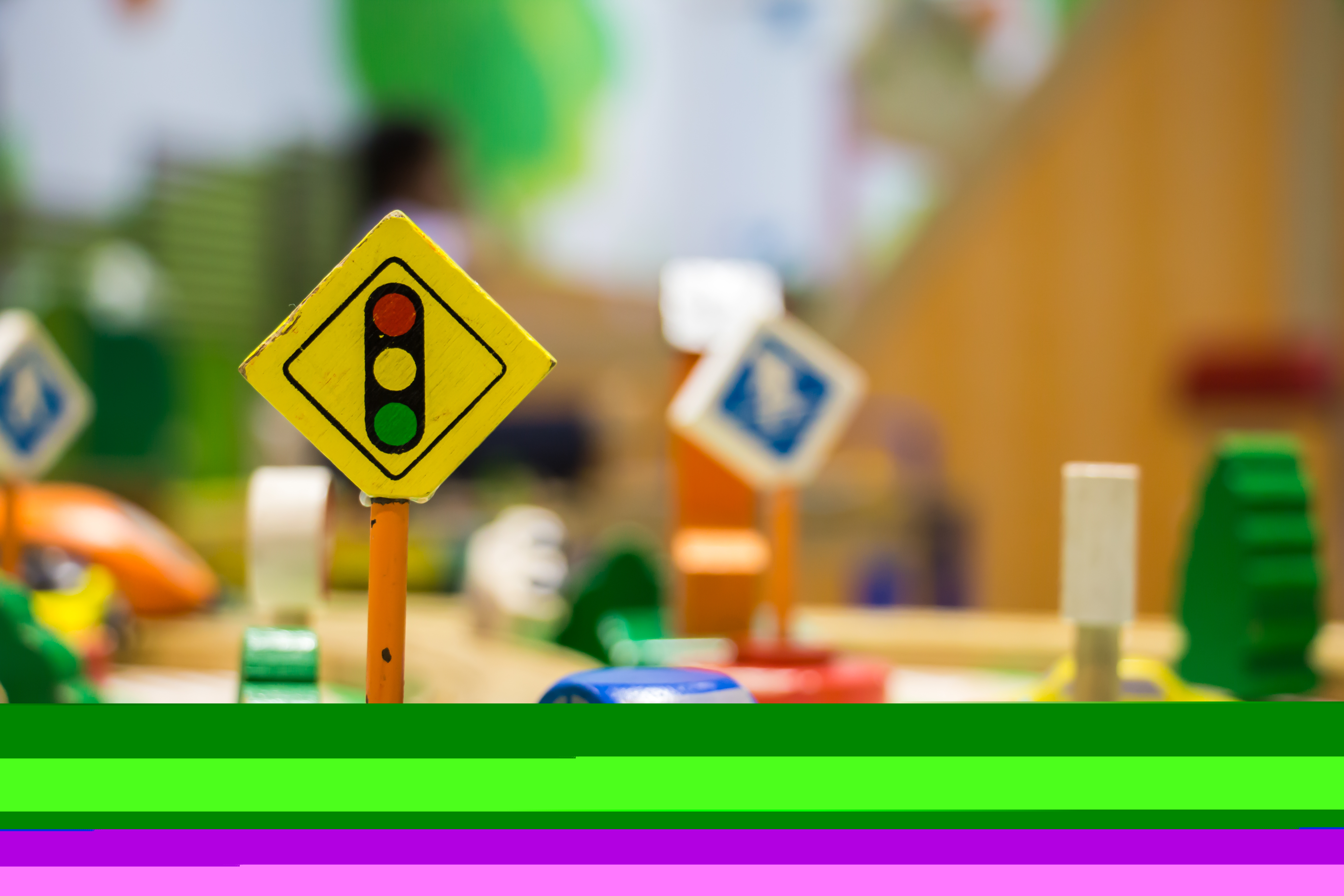Vocabulary Building Normal Community Worksheets for Ages 3-7
4 filtered results
-
From - To
Discover our engaging Vocabulary Building Normal Community Worksheets designed specifically for children aged 3-7. These interactive resources help young learners improve their language skills while exploring vital community concepts. Featuring colorful illustrations and age-appropriate activities, our worksheets encourage children to identify, understand, and use new vocabulary related to their everyday surroundings. By interacting with themes such as friends, family, and local places, children enhance their social awareness and communication skills in an enjoyable way. Suitable for classroom or at-home learning, these vocabulary worksheets are perfect for fostering a love of language and enriching your child’s educational journey. Explore today!
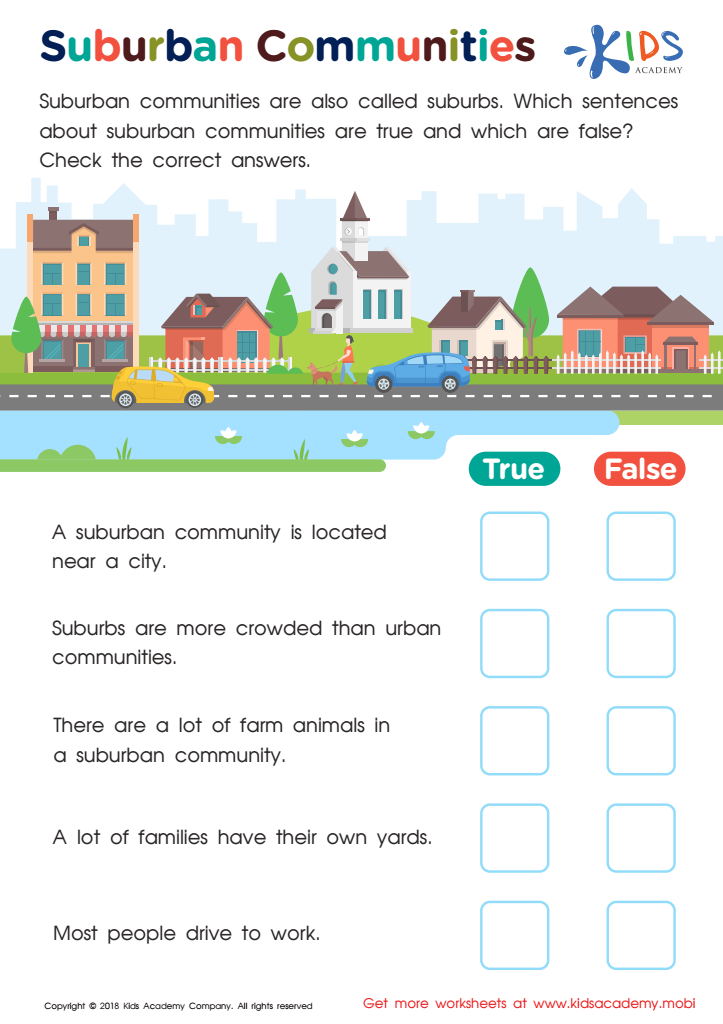

Suburban Communities Worksheet
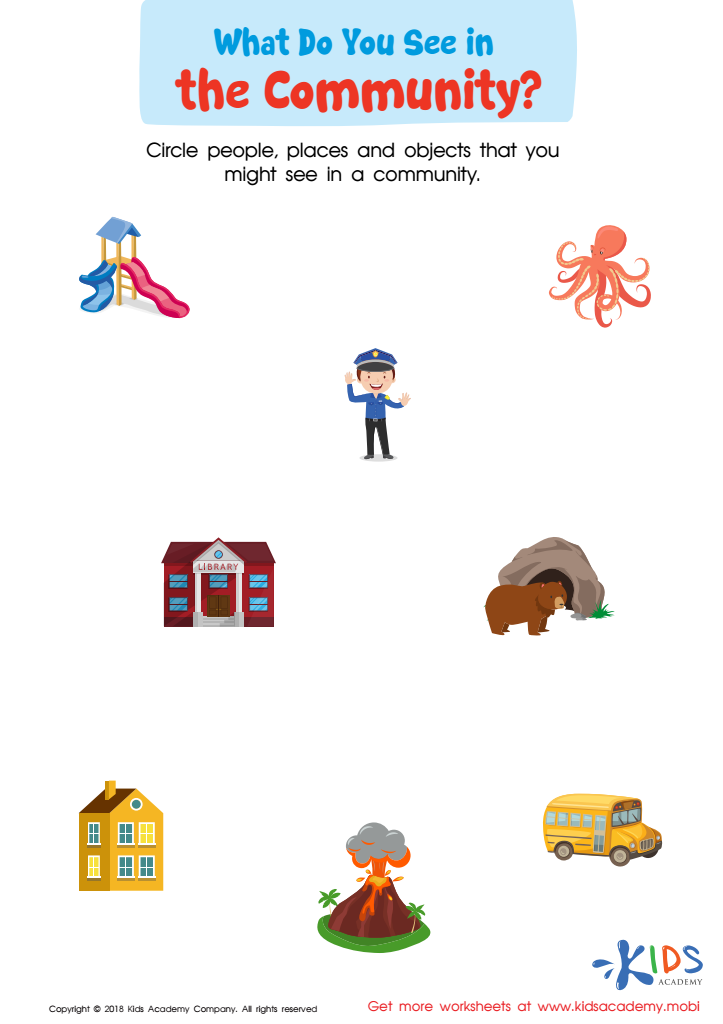

What Do You See in the Community Worksheet
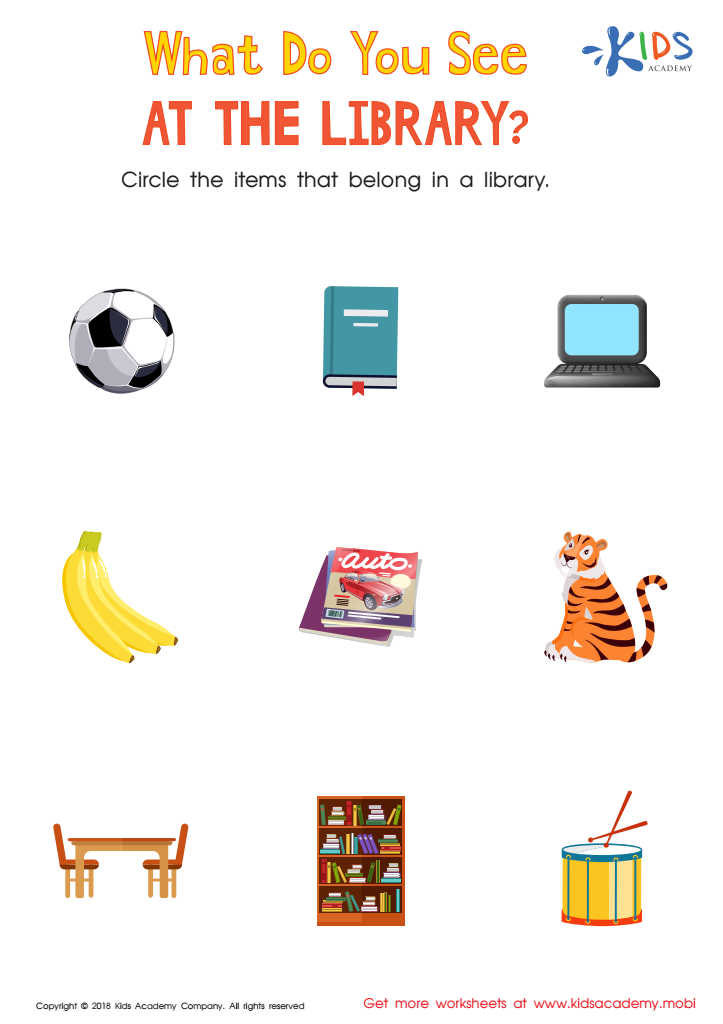

What Do you See at the Library? Worksheet
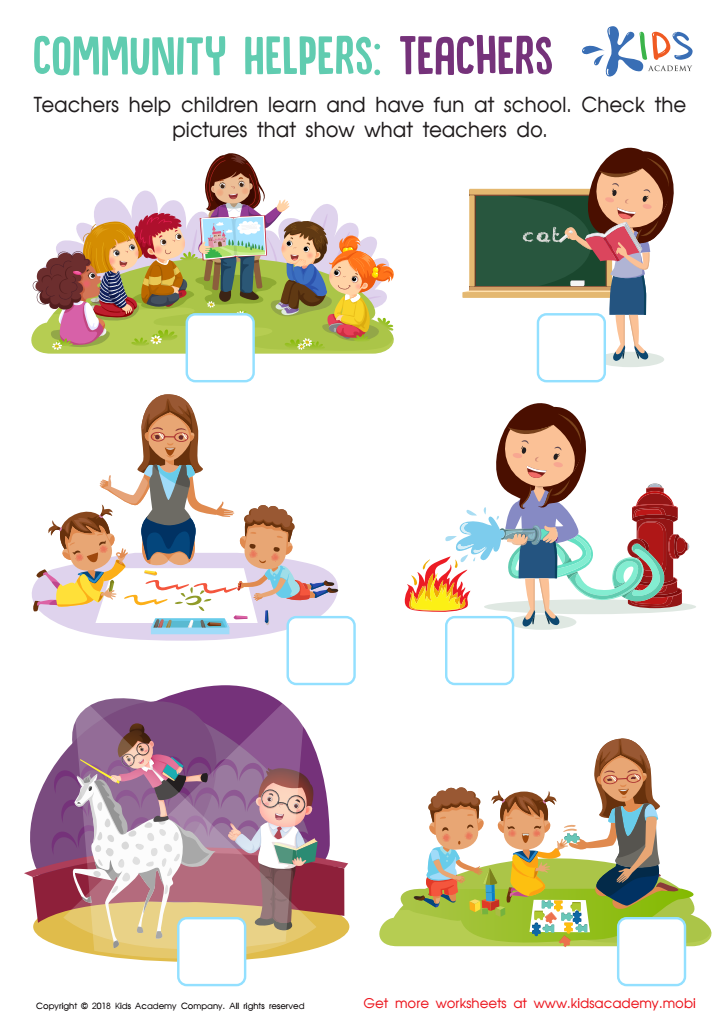

Teachers Community Helpers Worksheet
Vocabulary building is crucial for children ages 3-7, as it lays the foundation for their communication skills, literacy development, and overall academic success. During these formative years, children are particularly receptive to language acquisition, and rich vocabulary experiences can enhance their cognitive abilities and comprehension skills.
Parents and teachers should advocate for vocabulary development in a normal community context because it fosters a love of language and learning. Engaging environments that promote vocabulary growth encourage children to explore words through play, storytelling, and conversation, thereby enriching their understanding of the world around them.
Moreover, strong vocabulary skills are closely linked to better reading and writing proficiency, significantly influencing future educational opportunities. In a community setting, collaborative activities can introduce diverse vocabulary while also helping children connect with peers, build relationships, and develop social skills.
By prioritizing vocabulary building, parents and teachers nurture children's self-confidence and expressive abilities. This investment in early language development not only equips children with essential tools for academic achievement but also enables them to articulate their thoughts, feelings, and ideas effectively throughout their lives. Therefore, embracing vocabulary-building initiatives within the community is essential for fostering well-rounded, enlightened, and communicative future citizens.
 Assign to My Students
Assign to My Students






